Crafting a Winning Voicemail Strategy for B2B Sales
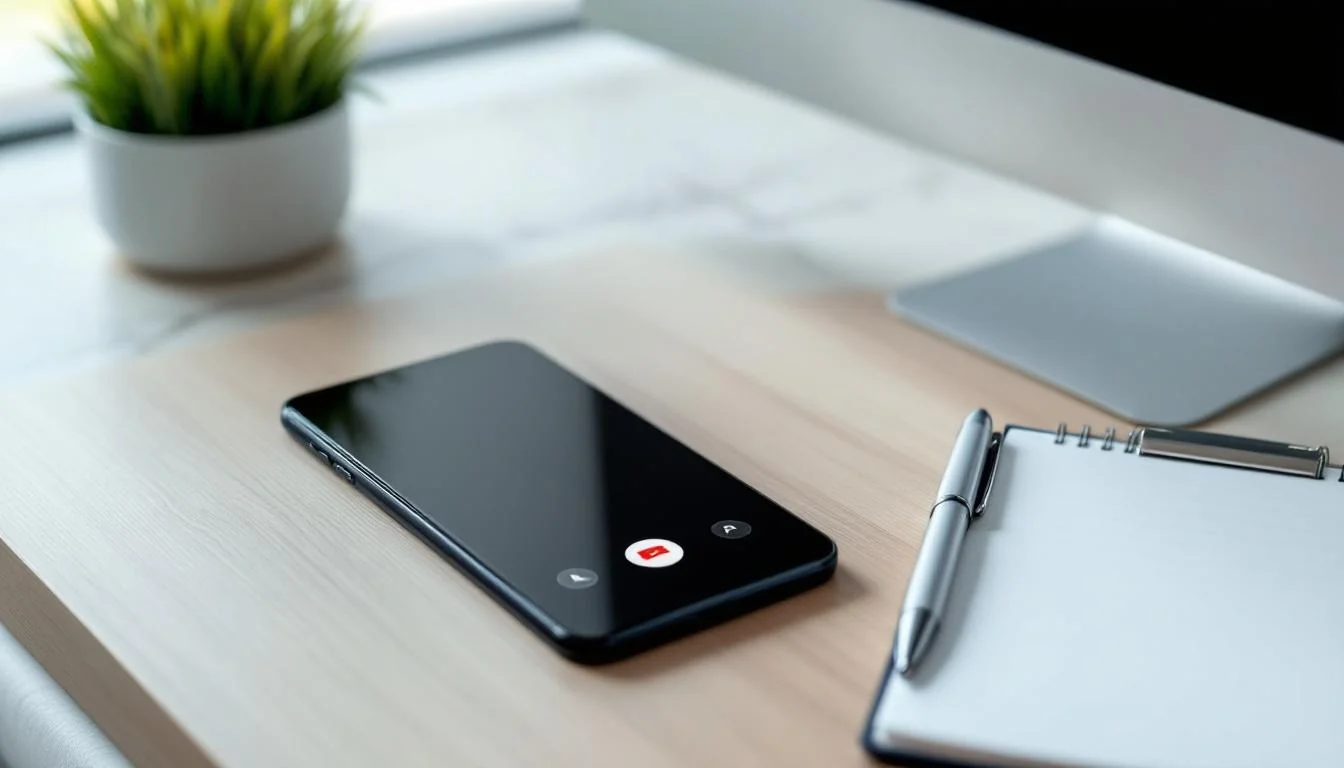
In the fast-paced world of B2B sales, a well-crafted voicemail strategy can be the key to unlocking new opportunities. At Drop Cowboy, we’ve seen firsthand how effective voicemails can significantly boost lead generation and conversion rates.
This blog post will guide you through the essential elements of creating winning voicemails for your B2B sales efforts. We’ll share proven techniques, best practices, and practical tips to help you maximize the impact of your voice messages and drive better results for your business.
Why Voicemail Matters in B2B Sales
The Prevalence of Voicemail in Business
Voicemail continues to dominate B2B sales communication. Recent studies reveal that 80% of B2B sales calls end up in voicemail. This staggering percentage underscores the importance of mastering voicemail techniques. Research by Brevet indicates it takes an average of 8 cold call attempts to reach a prospect. These statistics highlight the need for a strategic approach to voicemail in B2B sales.
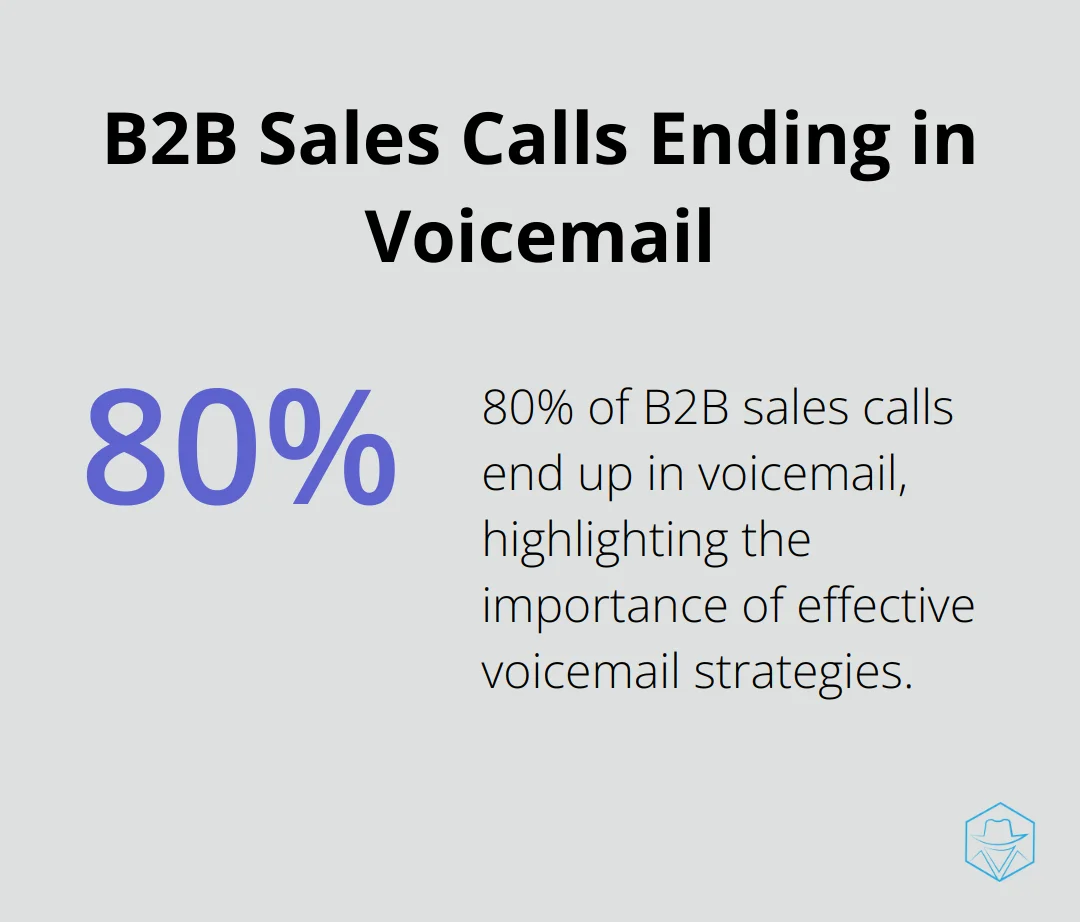
Voicemail’s Impact on Lead Generation
Effective voicemail use can transform lead generation efforts. Data from InsideSales.com shows that clever voicemail scripts can increase cold callbacks by up to 22%. This significant boost in response rates directly translates to more opportunities for sales conversations and potential conversions.
The Unique Advantages of Voicemail
Voicemail offers several benefits over other communication channels:
- Personal Touch: Unlike emails that can get lost in crowded inboxes, voicemails allow sales representatives to convey tone and enthusiasm (crucial for building rapport with prospects).
- Convenience: Recipients can listen to voicemails at their convenience, making them less intrusive than direct phone calls.
- Flexibility: This flexibility often leads to higher engagement rates. (For example, Drop Cowboy’s ringless voicemail feature delivers messages without ringing the phone, achieving particularly high return call rates.)
Maximizing Voicemail Effectiveness
To harness the full potential of voicemail in B2B sales, quality trumps quantity. Research indicates that personalized voicemails significantly increase response rates. Sales teams can create personalized voice messages that resonate with prospects, leading to better engagement and higher conversion rates.
The key to voicemail success lies in crafting messages that provide value to the recipient. You can turn voicemail from a simple communication tool into a powerful asset in your B2B sales strategy if you focus on the prospect’s needs and offer clear, concise information.
The Role of Technology in Voicemail Strategy
Modern technology has revolutionized the way businesses approach voicemail in B2B sales. Advanced platforms now offer features like voice cloning, automated delivery, and detailed analytics. These tools enable sales teams to create more personalized, efficient, and effective voicemail campaigns.
As we move forward, let’s explore the key elements that make up an effective B2B voicemail, and how you can craft messages that truly resonate with your prospects.
How to Craft a Powerful B2B Voicemail
The Perfect Opening
Your opening statement can make or break your voicemail. You have only seconds to capture your prospect’s attention. Start with a brief, friendly introduction that includes your name and company. Then, immediately provide a compelling reason for your call. For example: “Hi [Prospect’s Name], this is [Your Name] from [Your Company]. I’m calling because we’ve helped companies like yours increase their sales pipeline by 30% in just three months.”
Value Proposition That Resonates
After your opening, quickly transition to your value proposition. Tailor this to the prospect’s specific needs or challenges. Research from Gong.io shows that top-performing salespeople spend 52% more time discussing value than their average counterparts. Focus on outcomes rather than features. For instance: “We’ve developed a solution that automates your lead nurturing process, freeing up your sales team to focus on closing deals.”
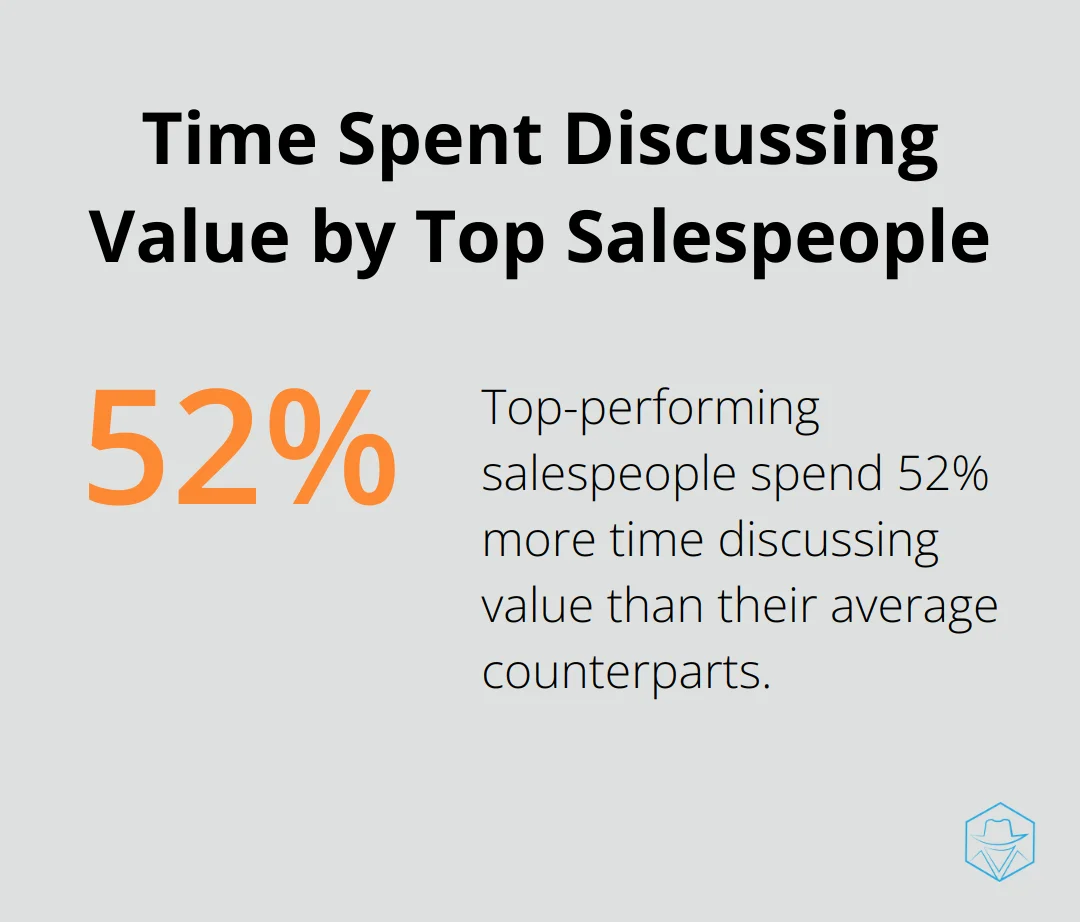
Create Urgency Without Pressure
You can motivate prospects to act by creating a sense of urgency, but it’s important to strike the right balance. Avoid pushy tactics that might alienate potential clients. Instead, highlight time-sensitive opportunities or industry trends that make your offer particularly relevant now. For example: “With the current market shifts, many of our clients see a 25% increase in conversion rates by implementing our system now rather than waiting.”
Clear and Compelling Call-to-Action
End your voicemail with a strong, specific call-to-action. Don’t leave it up to the prospect to figure out the next steps. Be clear about what you want them to do and make it easy for them to do it. A study by Velocify found that voicemails that include a specific date and time for a follow-up call can increase callback rates by up to 22%. You might say: “I’d love to schedule a 15-minute call next Tuesday at 2 PM to discuss how we can help you achieve similar results. I’ll follow up with an email with more details and my calendar link.”
Leverage Technology for Impact
Modern technology offers powerful tools to enhance your voicemail marketing strategy. Advanced platforms now provide features like voice cloning, automated delivery, and detailed analytics. These tools enable sales teams to create more personalized, efficient, and effective voicemail campaigns. (For instance, some platforms allow you to clone your voice to create personalized messages at scale, further enhancing the impact of your voicemails.)
The key to a successful B2B voicemail lies in its relevance, brevity, and clarity. You can craft voicemails that not only get heard but also drive action by focusing on these elements and leveraging the right tools. In the next section, we’ll explore best practices for timing, personalization, and follow-up strategies to maximize the effectiveness of your B2B voicemail campaigns.
Maximizing B2B Voicemail Success
Perfect Your Timing
Timing plays a crucial role in the success of your voicemail strategy. Research indicates that Tuesday through Thursday often work best for B2B voicemail campaigns. These time slots often catch prospects either before they start their workday or as they wrap up, which increases the likelihood of your message being heard and acted upon.
Wednesdays and Thursdays have proven to be the most effective days for B2B voicemails. You should avoid Mondays when prospects typically catch up from the weekend, and Fridays when they focus on finishing the week’s tasks.
Personalize Your Approach
Personalization sets your voicemails apart from generic messages. SalesHacker reports that personalized voicemails can boost response rates by up to 75%. Here are practical ways to personalize your messages:

- Mention recent company news or achievements
- Refer to mutual connections or shared interests
- Address specific pain points relevant to their industry
Instead of a generic opening, try something like: “Hi Sarah, I noticed your company just expanded into the European market. Congratulations! I have some insights on how we’ve helped similar companies streamline their international operations that I think you’d find valuable.”
Implement Effective Follow-Up Strategies
A single voicemail rarely does all the heavy lifting. A strategic follow-up approach can significantly increase your engagement rates. Data from Velocify suggests that it takes an average of six touchpoints to convert a lead. Here’s an effective follow-up sequence:
- Day 1: Initial voicemail + email
- Day 3: Follow-up email
- Day 5: Second voicemail + email
- Day 8: Final email
Each touchpoint should add value and not just repeat the same message. Your second voicemail might share a relevant case study or industry insight that wasn’t mentioned in your first message.
Leverage Technology for Better Results
Technology can revolutionize your voicemail strategy. Advanced platforms now offer features like voice cloning, automated delivery, and detailed analytics. These tools enable sales teams to create more personalized, efficient, and effective voicemail campaigns.
You should look for features like delivery confirmation, listen rates, and callback analytics when choosing a voicemail automation platform. These insights can help you refine your approach and improve your success rates over time.
Final Thoughts
Voicemail remains a powerful tool in the B2B sales landscape. Its personal touch, convenience, and targeted messaging capabilities make it an essential part of any comprehensive sales strategy. A well-crafted voicemail strategy can significantly boost lead generation and conversion rates for sales professionals.
We explored key strategies for creating winning voicemails throughout this post. These include perfecting your opening statement, delivering a clear value proposition, creating urgency, and including a strong call-to-action. Advanced platforms like Drop Cowboy offer innovative features such as automated delivery and detailed analytics to enhance your voicemail campaigns.
Consistency and continuous improvement are vital for an effective voicemail strategy. You should regularly analyze your results, refine your approach, and stay attuned to your prospects’ needs. (This will help you develop a strategy that resonates with your audience and drives tangible results for your business.)
blog-dropcowboy-com
Related posts

June 4, 2025
Jira Help Desk: Streamline Your Customer Support
Optimize your support with Jira Help Desk software. Enhance efficiency, boost customer satisfaction, and streamline your support process seamlessly.

March 13, 2025
How to Implement Omni-Channel Marketing Automation
Implement omni-channel marketing automation with practical strategies, boost your customer engagement and streamline your marketing efforts efficiently.
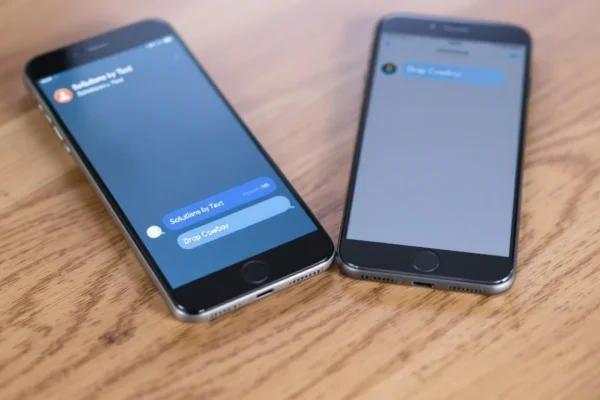
May 15, 2025
Solutions by Text vs. Drop Cowboy: Which SMS Platform Wins?
Compare Solutions by Text with Drop Cowboy to find the best SMS platform for your needs. Explore key features, user experiences, and pricing.
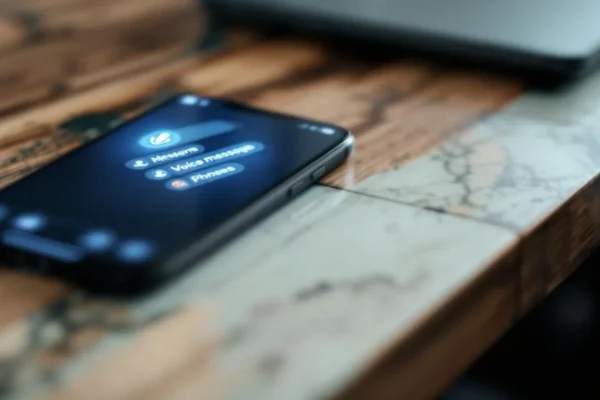
August 11, 2025
Send voice message to multiple phone numbers
Send voice messages to multiple phone numbers effortlessly and boost your communication efficiency with practical tips and effective tools.

April 14, 2025
Best Shopify Email Marketing Strategies for Conversions
Boost sales with the best Shopify email marketing strategies. Learn proven tips to increase conversions and enhance customer engagement.

April 21, 2025
What is Klaviyo and How Can it Benefit Your Business?
Discover what Klaviyo is and how it can boost your business with personalized marketing strategies and advanced analytics.